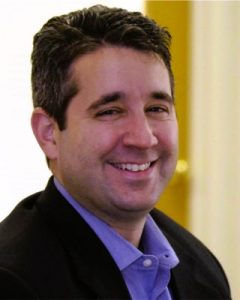In a first for an e-discovery technology company, Chicago-based Nextpoint is launching an Arizona law firm June 1 under that state’s liberalized law practice rules that allow non-lawyers to own law practices.
The law firm, Nextpoint Law Group (NLG), will provide discovery and litigation legal services to other law firms and to corporate legal departments, including trial strategy, early case assessment, document review, discovery drafting, legal research and brief writing. Its lawyers will not appear in court.
In addition, Nextpoint’s professional services group, which provides a range of litigation support services, is moving to the law firm, all with the mission of providing “uniquely data-driven legal services.”
Leading the firm as managing partner is Andrew R. Greene, a lawyer for almost 30 years who most recently was a partner with the alternative legal services provider Elevate Services. Earlier, he founded the boutique law firm ASG Law LLC, which represented growth companies nationwide in patent, litigation, healthcare, data privacy and employment, and of Legal Services Management LLC, a company that developed and delivered technology and support services to the legal market.
The Arizona Supreme Court — which in 2020 eliminated the longstanding ban on nonlawyer ownership of law firms — approved Nextpoint’s application to be licensed as an alternative business structure on April 18, 2023. The firm will officially open its doors on June 1.
Learn more about Nextpoint at the LawNext Legal Technology Directory.
A Natural Extension
In an interview with Greene and Rakesh Madhava, Nextpoint’s founder and CEO, Madhava said that opening a law firm was a natural extension of the services the company was already offering.
A litigation consultant before he founded Nextpoint in 2001, Madhava always saw it as core to Nextpoint’s mission to have a professional services team.
“Having great software is awesome, but a lot of firms lack the internal resources and know-how to really understand how to run the software,” he explained. “It’s kind of like, you can buy an airplane, but if you don’t have any pilots, then the airplane doesn’t do you much good.”
Nextpoint’s professional services team already included a number of lawyers, who consulted with law firms and legal departments on matters such as developing ESI protocols, setting up collections, developing best practices, and preparing for meet-and-confer conferences.
Given this, when Madhava learned of Arizona’s rule change and ABS-licensing structure, he saw the opportunity to extend those services even further, offering clients the combination of technology expertise and legal expertise in a single firm.
“Nextpoint Law Group is building on this foundation to provide tech-enabled legal services to law firms and corporate legal departments of all sizes,” Madhava said. “It also allows us to extend our support beyond technology services and assist firms with legal advice as they navigate rapidly changing regulatory frameworks surrounding data privacy.”
Up until now, said Greene, Nextpoint could provide the technology and it could provide the technical expertise. “Now, we’ll also be able to offer the legal advice — do the legal research, draft motions, manage structure and run document reviews. Also, because we’ve recruited, in addition to myself, experienced trial lawyers, we’ll be able to participate in the overall litigation strategy.”
“By having the law firm, it opens up the door to a lot of things that, for an ALSP, might be considered unauthorized practice of law,” Greene said. “We won’t have that issue.”
It also allows the firm to be more flexible in its fee structure, Greene said, matching the fee structures of its law firm clients, regardless of whether they bill hourly or on a fixed-fee or contingency basis.
Serving Clients Nationwide
Although the law firm will be physically located in Arizona and all of its lawyers will be licensed in Arizona, Greene said that the firm will represent clients throughout the United States.
“Because we will be working with law firms that are licensed in their jurisdictions, we can co-counsel with them and that allows us to practice pretty much nationwide,” he said. When appropriate, NLG’s lawyers will also be able to seek pro hac vice admission under other states’ rules.
Greene expects that the bulk of the firm’s clients will be other law firms, which was already the case with Nextpoint’s professional services team. To a lesser extent, the firm will also service corporate legal departments, but only in strategic areas such as early case assessment or portfolio analysis.
NLG’s lawyers will not go to court or take depositions, Greene said. “That’s not where we see the need. The law firms we work with, they’re very highly qualified, experienced attorneys. They were hired to appear in court, take the depositions, and so on. Where the need is, really, is in the behind-the-scenes bench to support them.”
Madhava said that, in launching this law firm, a central factor was ensuring that Nextpoint stays on course as a SaaS software provider, while also wanting to continue being additive to his clients’ efforts.
He said that he had come to see a gap between Nextpoint’s technical experts — data scientists, computer programmers, and the like — and its lawyer consultants.
“What we saw was when we hired lawyers and we had them working with our clients, they speak the same language — it is a much more natural conversation. I think lawyers naturally want to hear from other lawyers. They want people who understand the ethical and jurisdictional and procedural concerns that they have.”
A Soft Launch
When it opens this week, NLG will have six lawyers and consultants. but Greene said recruitment is already underway to expand the staff. Greene will divide his time between Arizona and Chicago.
Also joining the firm are Brett Burney, an e-discovery consultant and widely known writer and podcaster on legal technology, and Sonali Hanson, a legal data specialist who was most recently privacy and compliance officer at Nextpoint and who has managed Nextpoint’s professional services department for more than three years.
Greene described this week’s opening as a soft launch that will start with providing services to some of Nextpoint’s existing customers. From there, the firm will eventually branch out and begin taking on new clients.
Even as it begins to branch out, the best fit for NLG will be clients who are using Nextpoint as their primary discovery software platform, Greene said.
If a client came to the firm and said they wanted to use some other platform, he would not necessarily rule it out, he said, “but we’d obviously be forthcoming and say we’re probably not the best people to do that because our people are all going to be trained on Nextpoint — that’s where part of our value is.”
The professional services team already uses other software where appropriate to handle tasks that Nextpoint does not.
“One of the central value propositions is going to be a team of attorneys that is highly trained and has a great deal of day-to-day experience in using a software platform that can act as a complete system of record,” Madhava said.
“We work with clients all the time right now who may be in a different e-discovery review platform, but they want to use our litigation suite and they want to get the deposition transcripts in, and we work with them on figuring out how to get exports in, right. We want it to be additive. We think the integrated vertical offering is central to the value proposition.”
Arizona’s rules require that an ABS appoint a compliance lawyer who is responsible for ensuring that the ABS complies with the state’s ABS rules and regulations. For NLG, Greene will serve as the compliance lawyer.
The firm has also retained Lynda Shely, a Scottsdale ethics lawyer, to provide advice and training on Arizona’s rules. Shely is the 2020-2023 chair of the American Bar Association’s Standing Committee on Ethics and Professional Responsibility and a member of the Arizona Supreme Court’s Alternative Business Structure Committee.
Shely is compliance counsel to another ABS I previously covered, Axiom Advice & Counsel LLC, the law firm formed by ALSP Axiom.
Opportunity for Smaller Firms
Both Madhava and Greene say they are particularly excited about the opportunity for this firm to serve smaller and boutique firms that may not have the technical or legal infrastructure to handle more, or more complex, litigation matters.
“If you’re a talented litigator and you have five lawyers, you probably have enough business to keep 20 lawyers busy, but you don’t have the bandwidth to build out to go hire those associates, to get them trained, to build the internal infrastructure to be able to handle more cases,” Madhava said. “What we’re talking to them about is how can we help you handle more cases through your practice without needing to invest your own time and resources in doing that.”
Greene said his hope is to offer a service that focuses on the needs of small-to-midsized firms. “Maybe they can’t commit to 40 hours a week of a mid-level associate for six months, but they really need 30 hours a month of a certain range of help with their discovery — we’re really attuned to those needs.”
It is, said Madhava, a legal services model that fits with Nextpoint’s technology model, which, because it is a cloud platform, allows firms the elasticity to allocate resources as needed for individual matters.
“Legal matters are spiky, there’s bursts of activity and then there’s a lot of sitting around and waiting for an opinion or a ruling, and then once the ruling comes down, then you have to burst back the activity. It’s like, ‘Okay, now we’re being compelled to produce these documents within 30 days, how are we going to get all this done?’ That is a regular part of the cycle of life here.”
 Robert Ambrogi Blog
Robert Ambrogi Blog

